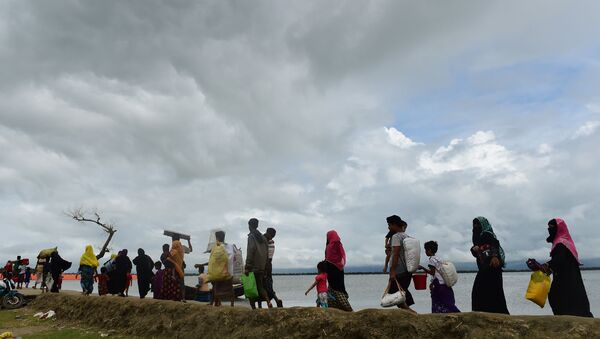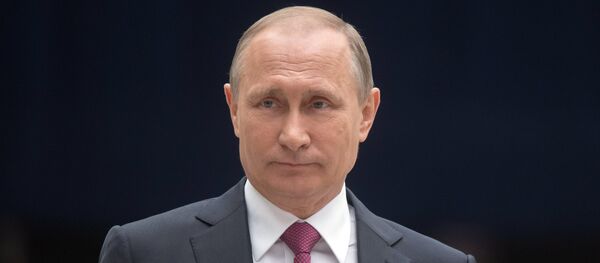New Delhi (Sputnik) — Bangladesh is awaiting Myanmar’s response to its proposal on the peaceful repatriation of Rohingya refugees to Myanmar. Deputy Press Secretary to Prime Minister of Bangladesh Nazrul Islam, in an exclusive interview with Sputnik, said that though Bangladesh has made the proposal in earnest, Myanmar government has not displayed any seriousness on the issue so far.
“Officially Bangladesh has offered the proposal of repatriation. But whether they are really serious in repatriation or just buying or killing time, it will be clear after some time,” Nazrul Islam said.
“Bangladesh has outlined a concrete modality on how their citizens will be repatriated to their country. The Myanmar Deputy Minister said that they will examine the modality given by our side. And we are waiting for Myanmar’s response,” he added.
“Bangladesh expects Myanmar to repatriate all the Rohingya refugees who have arrived in Bangladesh. Rohingyas who came here do not have an identity card. How can they prove whether they are indeed citizens of Rakhine? It's very difficult. From our side, we are making a registration of all foreigners who arrive in Bangladesh illegally,” Nazrul Islam said.
On the safety of the Rohingyas after their repatriation, he said, “It is very difficult to say. We can only expect that persecution will not be repeated. This time the whole world is against such persecution. The entire international community is against the atrocities committed by Burma. I think that it should not happen again.”
“We have heard about ARSA only recently. We really don't know about their work and their activities. So I can't say much about them,” Nazrul Islam said.
Independent estimates have put the number of Rohingya refugees in Bangladesh at around 0.5 million. They have arrived in Bangladesh after allegedly fleeing what has been described as “textbook ethnic cleansing” in neighboring Myanmar.
Refugees in Bangladesh are mostly stranded in the southern areas of Shah Puri Dwip, Sabrang, Shamlapur and Cox’s Bazar. The government of Bangladesh also runs huge camps in Kutupalong and Balukhali. Media reports emanating from Bangladesh suggest refugees who are not lucky enough to get space in government camps are living along the sides of roads, in mosques, in forests, and in plastic huts.




